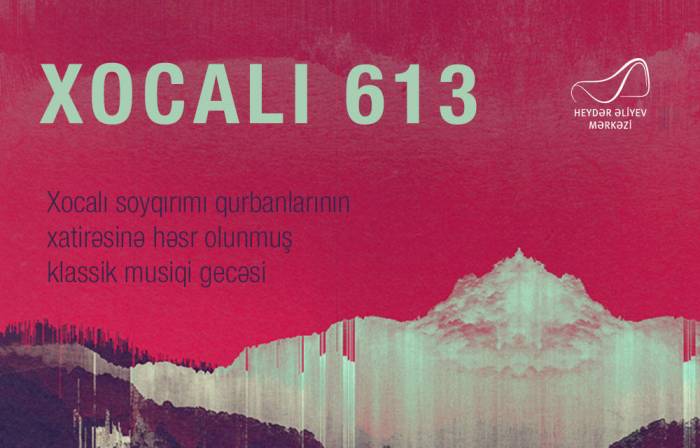Classical works of Azerbaijani and world composers, as well as French composer Pierre Thilloy’s “Khojaly 613” symphony poem, are to be presented in the concert program.
Pierre Thilloy’s “Khojaly 613” symphony poem commemorates 613 civilian victims of the Genocide carried out by Armenian armed forces in Azerbaijani city of Khojaly on Feb. 26—27, 1992.
The Azerbaijan State Symphony Orchestra named after Uzeyir Hajibeyov will perform at the concert under the conducting of Fuad Ibrahimov.
The work combines western classical music and Azerbaijani national motives, including such songs as “Lachin” and “Sary Gelin”. A synthesis of march rhythms, soldiers’ procession sounds and machine-gun bursts reminds the horror of the Khojaly tragedy.
“Khojaly 613” symphony poem reflects a call for peace and prevention of such tragedies as Khojaly Genocide in the future.
The work was premiered in Paris on Feb. 21, 2013. Later, it was presented in London, Mulhouse, Strasbourg, Rouen, Colmar, Brussels, Athens, Vilnius, Bern, Geneva, Dublin and Oslo.
The concert program in Heydar Aliyev Center includes works of renowned Azerbaijani composers: Fikret Amirov’s “Azerbaijani Capriccio”, Gara Garayev’s “Mourning Ode” and a “Travel” fragment from “Don Quixote”, American composer Samuel Barber’s “Adagio”.
On Feb. 25-26, 1992, the Armenian armed forces, together with the 366th infantry regiment of Soviet troops, stationed in Khankendi, committed an act of genocide against the population of the Azerbaijani town of Khojaly. As many as 613 people, including 63 children, 106 women and 70 old people were killed in the massacre. Eight families were totally exterminated, 130 children lost one parent and 25 children lost both. Some 1,275 innocent residents were taken hostage, while the fate of 150 people still remains unknown.
The conflict between the two South Caucasus countries began in 1988 when Armenia made territorial claims against Azerbaijan. As a result of the ensuing war, in 1992 Armenian armed forces occupied 20 percent of Azerbaijan, including the Nagorno-Karabakh region and seven surrounding districts.
The 1994 ceasefire agreement was followed by peace negotiations. Armenia has not yet implemented four UN Security Council resolutions on withdrawal of its armed forces from the Nagorno-Karabakh and the surrounding districts.
More about: Khojaly
















































